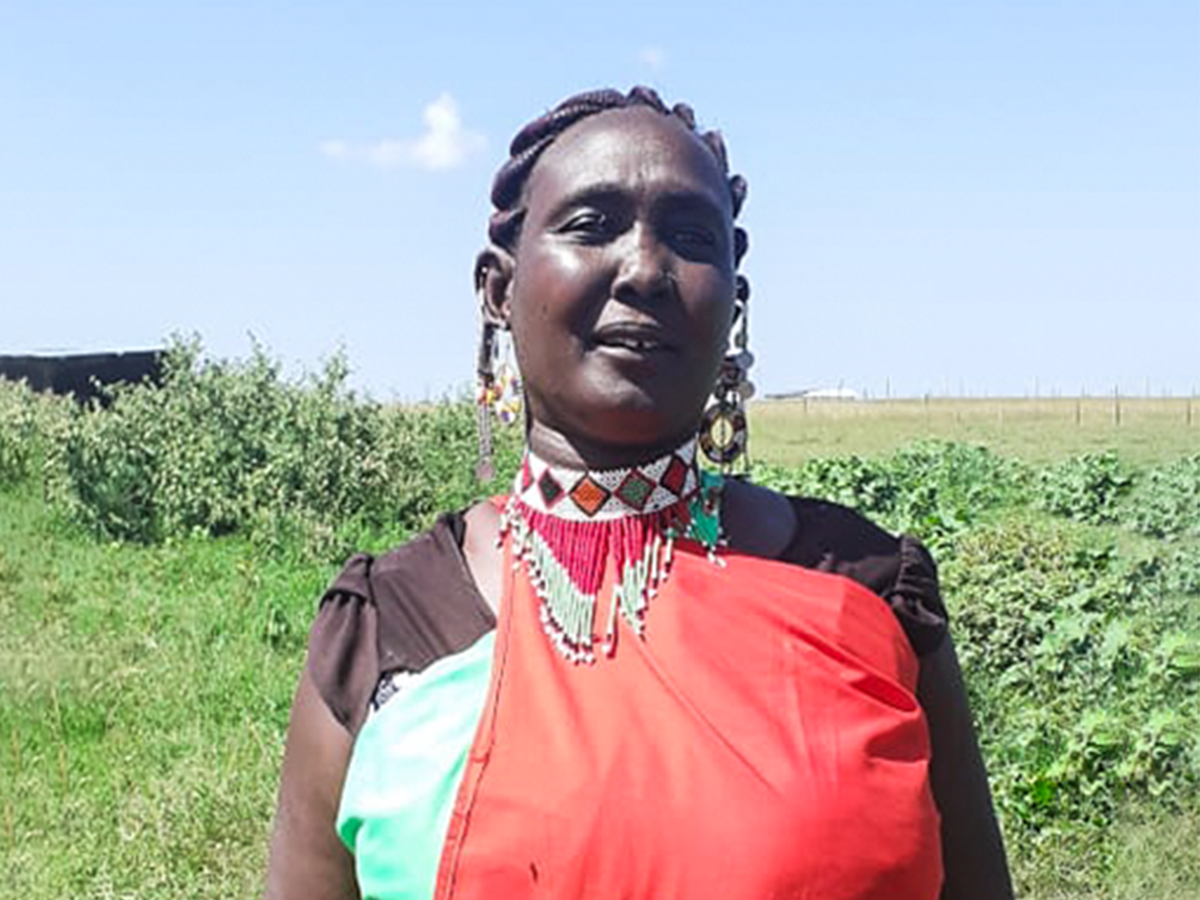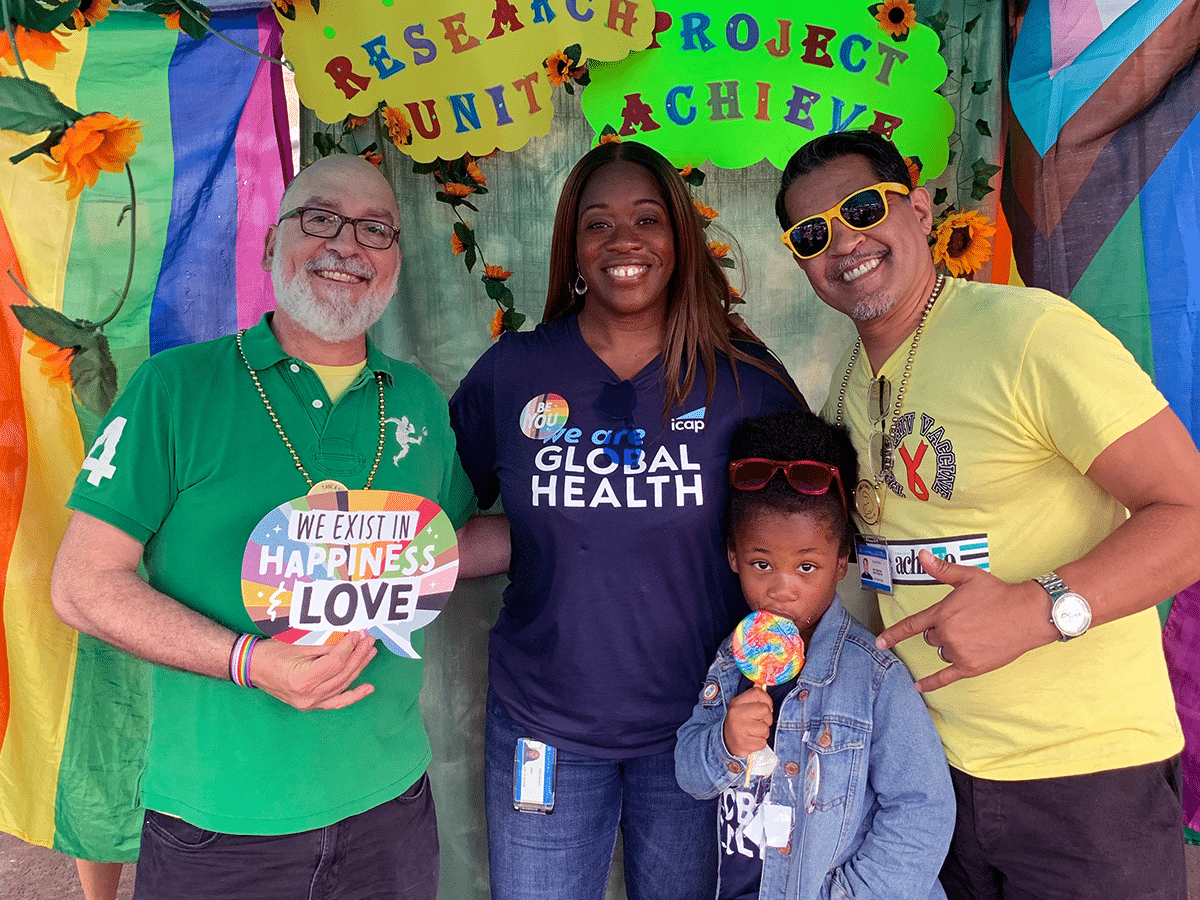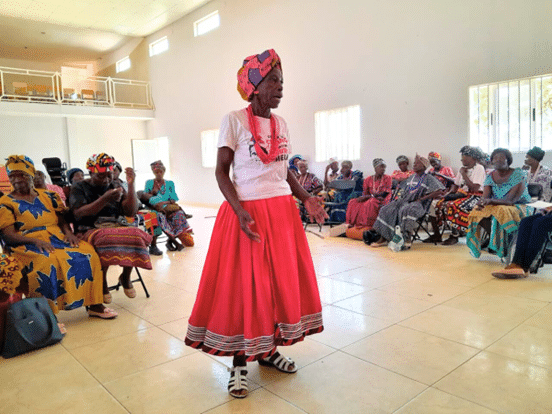In Kenya, the fight against cervical cancer is a collaborative effort. Approximately 5,236 women are diagnosed with cervical cancer every year, making it the second leading cause of cancer in the East African country. Every day, nine women in Kenya die from the disease.
Ntamen Kaleku, a mother, living in rural Narok County in Kenya, was lucky. The cervical cancer survivor received lifesaving treatment through one of the partners in the MOH-led STOP Cervical Cancer initiative. Kaleku had been suffering from lower abdominal pain for weeks, and doctors in her region could not figure out the cause. Kaleku heard about a cervical screening camp in a nearby town. The screening would link Kaleku to get treatment for her stage 3 cervical cancer diagnosis. After making a full recovery, she encourages the women in her community to go for cervical cancer screening.
To improve awareness about cervical cancer and reach more women like Kaleku who need access to cervical screening, ICAP at Columbia University, through the RISE-Kenya Project, is partnering with the Kenyan Ministry of Health’s (MOH) National Cancer Control Program (NCCP) and other stakeholders to advocate for cervical cancer screening, prevention, and treatment in Kenya. The project is being undertaken with support from the U.S. President’s Emergency Plan for AIDS Relief (PEPFAR) through the United States Agency for International Development (USAID) funded Reaching Impact, Saturation, and Epidemic Control (RISE) program.
“RISE’s partnership with the Kenya NCCP is focused on increasing advocacy and messaging about the need for cervical cancer screening for all women, but especially among women living with HIV,” said Maureen Syowai, MBChB, ICAP’s senior technical advisor in Kenya. “Cervical cancer is easily treated if caught early, but there is a huge gap in cervical cancer screening, treatment, and vaccination in Kenya. RISE will provide the NCCP with technical assistance and communication support to scale up cervical screening and treatment that we envision will go a long way to identify and treat cervical cancer early and save lives,” said Dr. Syowai.
The project will develop appropriate training, information, education, and communication materials for community health volunteers and champion women living with HIV to encourage women to undergo screening for cervical cancer regularly to identify and treat cervical cancer early. Communications support will also include disseminating key messages that dispel misconceptions about cervical cancer that lead to stigma and reluctance to screening. The partnership between RISE and the Kenya NCCP also aims to advocate for cervical cancer screening and treatment programs to be integrated with HIV care and treatment services.
Most of the NCCP’s work is focused on policy development, capacity building, and providing technical guidance to counties on all matters around cancer prevention and control. Fostering partnership and standardizing the screening and treatment guidelines for cervical cancer in Kenya is part of NCCP’s role. NCCP has recently concluded a pilot project to introduce the gold-standard cervical cancer screening method, HPV testing, in Kenya. Currently, the NCCP is training over 2000 health workers on how to screen and treat early cervical cancer diagnosis.
The NCCP has also led a collaborative STOP Cervical Cancer initiative and the commemoration of a National Cervical Cancer Awareness week every January since 2019 to increase cervical cancer awareness and advocacy.
“ICAP has a proven track record of improving health outcomes for families in Kenya, especially working with the National AIDS and STI Control Program (NASCOP) to achieve HIV epidemic control. We trust that the new partnership with the NCCP will help achieve similar outcomes for cervical cancer,” said Dr. Dennis Osiemo, MBChB, MSc, project management specialist at USAID, Kenya.
This new partnership between RISE-Kenya and NCCP is only one part of ICAP’s cervical cancer work in the country. Since 2016, ICAP has supported the establishment of cervical cancer screening centers of excellence within HIV clinics at 10 high-volume health facilities across five counties in Kenya. ICAP then supported these centers with needed equipment and treatment supplies such as cryotherapy machines, gynecology examination beds, and laboratory reagents. ICAP also trained more than 100 health workers and collaborated with the University of Nairobi to train 21 nurses at smaller health facilities to conduct cervical cancer screening and treatment. Between January 2016 and July 2019, ICAP’s screen-and-treat approach at the Jaramogi Oginga Odinga Teaching and Referral Hospital resulted in screening 5,861 women living with HIV. Of those, 236 women screened had evidence of early cervical cancer lesions, and more than half, 124 of the women, received treatment.
Beyond Kenya, ICAP has supported the screening and treatment of cervical cancer throughout sub-Saharan Africa since 2009. In Eswatini, ICAP developed and piloted a cervical cancer screening register that has since been adopted by the Ministry of Health and rolled out nationally. In Mozambique, ICAP has collaborated with the Maternal and Child Health Integrated Program since 2011 to train nurses to provide cervical cancer screening and treatment, increase linkages between HIV and women’s health care services, and disseminate clinical tools and materials to increase awareness about cervical cancer. In Tanzania, ICAP supported the Ministry of Health and Social Welfare to launch cervical cancer screening programs at more than 40 health facilities in three regions.
The RISE-Kenya project advances this continuing work to support women’s health as part of a broader vision of contributing to healthy people, empowered communities, and thriving societies around the world.
RISE is a five-year global project funded by the U.S. President’s Emergency Plan for AIDS Relief (PEPFAR) and the U.S. Agency for International Development (USAID). It works with countries to achieve a shared vision of attaining and maintaining epidemic control, with strong local partners capable of managing and achieving results through sustainable, self-reliant, and resilient health systems. RISE is led by Jhpiego, with ICAP at Columbia University, Management Sciences for Health, and ANOVA Health Institute as core consortium partners.
A global health leader since 2003, ICAP was founded at Columbia University with one overarching goal: to improve the health of families and communities. Together with its partners—ministries of health, large multilaterals, health care providers, and patients—ICAP strives for a world where health is available to all. To date, ICAP has addressed major public health challenges and the needs of local health systems through 6,000 sites across more than 30 countries.








